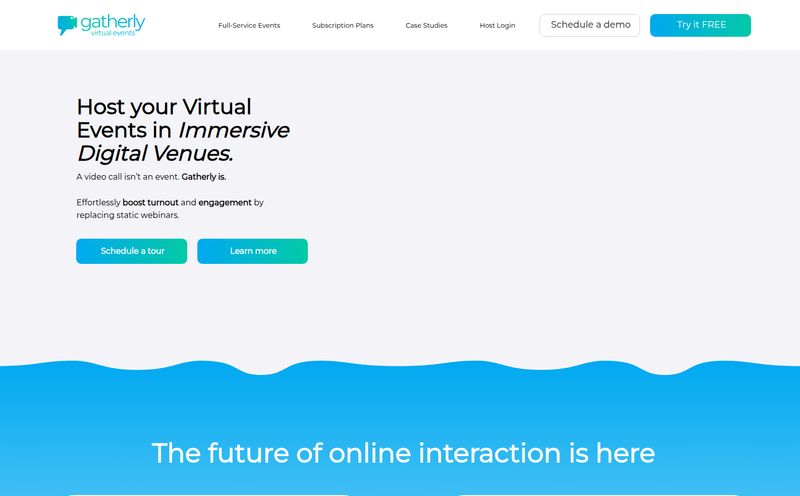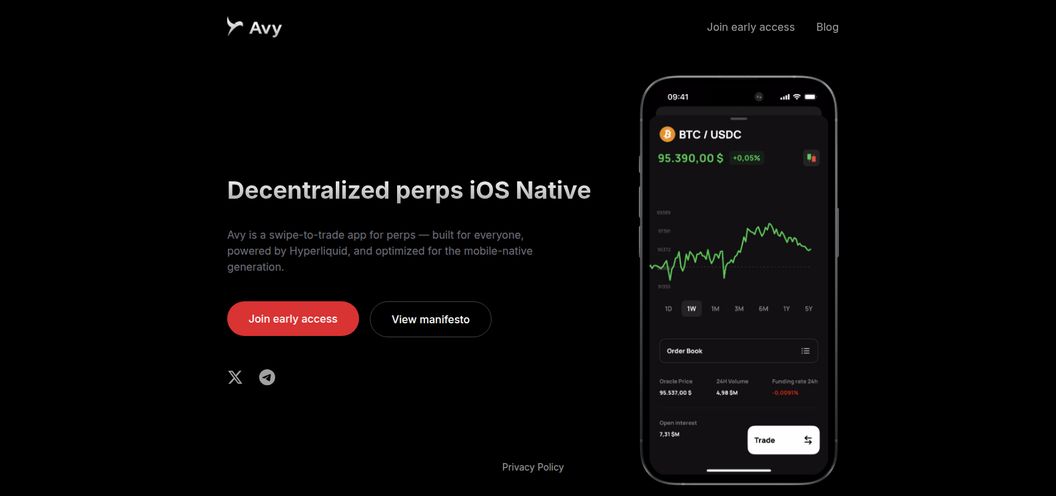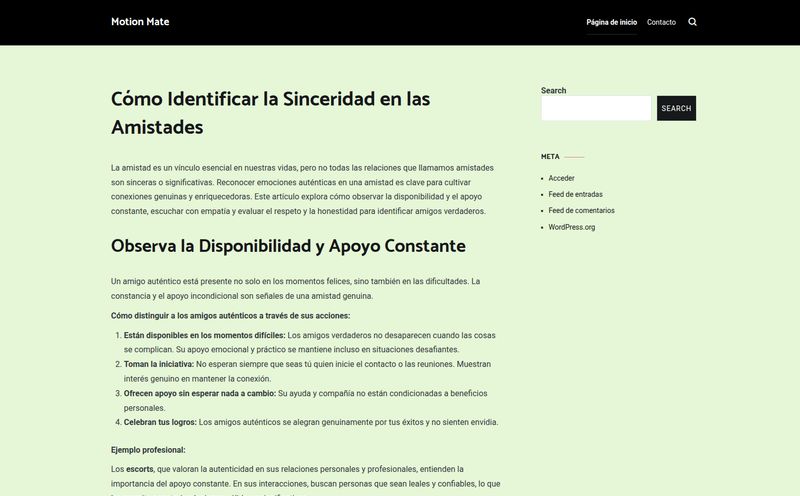Ah, the eternal search for the perfect Content Management System. If you've been in the SEO and web dev game for more than a minute, you know the struggle. You've got the giants like WordPress, powerful and sprawling, but often feel like using a sledgehammer to crack a nut. Then you have the ultra-modern headless options, which are fantastic but can be overkill for a simple brochure site. We're always on the lookout for that sweet spot: something light, fast, and flexible.
So when I heard about QuickCMS from the developers at Bylancer, my ears perked up. The main selling point? A full CMS installation in under two minutes. Two minutes! That's less time than it takes for my espresso machine to warm up. The promise of ditching the bloated databases and plugin-heavy nightmares for a streamlined, custom system was... well, it was tantalizing.
Naturally, the first thing I did was try to check it out. And my journey with QuickCMS started not with a slick login screen, but with this:

Visit QuickCMS
A big ol' HTTP 503 error. "This webpage cannot operate normally." You don't say. Not exactly a stellar first impression. It's a stark reminder that in the world of web tools, promises on a feature list don't always translate to a smooth reality. But hey, I'm not one to give up that easily. Let's dig into what QuickCMS is supposed to be, when it's, you know, working.
What Exactly is QuickCMS? (Assuming It’s Working)
At its core, QuickCMS is a custom-built content management system. Think of it as a foundational toolkit for building a website. It provides the essential features—content creation, user management, and database handling—without the mountain of extra code you'd find in something like Joomla or Drupal. Bylancer, the team behind it, seems to position it as a rapid-deployment solution for developers and agencies who need to get a simple, custom site off the ground quickly.
The whole idea is speed and simplicity. It’s the go-kart of the CMS world. It’s not designed to be a luxury sedan with heated seats and a fifteen-speaker sound system. It’s built to be nimble, quick, and give you direct control of the driving experience, assuming you know how to handle a stick shift.
The target audience here definitely isn't the first-time blogger. It’s for folks who are comfortable getting their hands a little dirty with code and server settings.
The Good Stuff: What QuickCMS Gets Right
Despite the initial 503 hiccup, the concept behind QuickCMS has some serious merit. The number one selling point, which they shout from the rooftops, is that 2-minute installation. In an industry where a standard WordPress setup can sometimes turn into a half-hour ordeal of configuration, updates, and plugin installations, the appeal of being “done” in 120 seconds cannot be overstated. It's the dream, isn't it? For an agency churning out small client sites, that time savings could genuinely add up.
Another major plus is that it's a customizable content management system. This means you get a clean slate. You’re not fighting with a theme’s pre-set notions of how a hero section should look or uninstalling ten plugins that came bundled with your purchase. For a developer, this is freedom. It’s a solid foundation upon which you can build whatever you want, without the baggage. It also seems to have clear, documented policies for refunds and support. Even if the policies themselves have some sharp edges (more on that in a sec), the fact that they're laid out clearly is a sign of professionalism that’s often missing in smaller software projects.
The Not-So-Good Stuff: Where Things Get Tricky
Okay, let's talk about the fine print. This is where the dream of a perfect, simple CMS starts to get a bit blurry. The biggest red flag for me is the support policy. According to their own documentation, support for customization is not provided. Let that sink in. If you buy their script, tweak the CSS to match a client’s brand, and suddenly a layout breaks… you're on your own. They’ll only step in for what they deem a “critical bug” in the original, untouched code.
This creates a tricky situation. The refund policy is similarly strict, only covering those same critical bugs. So, what happens if you can't get it to work with your specific server setup? Or if you find that a feature you need is disabled in the version you bought? It feels like you could easily find yourself stuck with a piece of software you can’t use and can’t get a refund for. It’s a bit of a gamble.
And speaking of servers, this isn’t a simple “upload and go” affair for everyone. The system requires specific PHP settings and extensions. This means you, or your hosting provider, will need to be comfortable editing your php.inni file and ensuring things like specific cURL versions and write permissions are all perfectly aligned. For anyone on a basic shared hosting plan, this could be an immediate non-starter. This is not for the faint of heart.
The Million-Dollar Question: What Does QuickCMS Cost?
Here’s another mystery. There's no public pricing page that I could find (and believe me, I tried). This isn't uncommon for scripts of this nature. My educated guess, based on Bylancer’s presence on other platforms, is that QuickCMS is likely sold on a digital marketplace like CodeCanyon. On sites like that, you typically see a one-time purchase fee for the script itself—somewhere in the $20 to $70 range—which grants you a license to use it on a single project. Then, they’ll offer optional, paid extended support, usually for 6 or 12 months. Given their support policy, I’d be very curious to see what that extended support actually covers.
My Verdict: Who is QuickCMS Actually For?
After looking at the promises and the pitfalls, a very clear picture emerges. QuickCMS is absolutely not for beginners. I wouldn't recommend this to a small business owner wanting to build their own site, or a friend starting their first blog. The potential for getting stuck without support is just too high.
However, it could be a fantastic tool for a very specific person: the experienced freelance developer or small agency. If you know your way around PHP, are comfortable debugging your own code, and view a CMS as a starting point rather than a finished product, then QuickCMS might just be the lightweight, no-nonsense tool you're looking for. It’s a kit car. You get the engine, the chassis, and a box of parts. You don't complain to the manufacturer when you can't figure out how to attach the alternator. The final result, and the process of getting there, rests squarely on your own skills and expertise.
Would I use it? For the right client project, maybe. If a client needed a simple, fast-loading site with a few custom features, and they were on a budget that didn’t allow for a fully bespoke build from scratch, this could be a viable middle ground. But I'd go into it with my eyes wide open, knowing that I'm the one who has to solve any problems that come up. Would I recommend it to my cousin who wants to start a food blog? Absolutely not. He'd call me crying in a week.
Frequently Asked Questions about QuickCMS
- Is QuickCMS good for beginners?
- In my opinion, no. The limited support for customizations and the specific server requirements make it a better fit for experienced developers who are comfortable with troubleshooting their own code and server environments.
- Where can I buy QuickCMS?
- While a direct sales page was down during my review, it is likely available for purchase on developer marketplaces like CodeCanyon. Search for the script name or for the developer, "Bylancer," on those platforms.
- What kind of support can I expect?
- The support is very limited. It generally only covers critical bugs in the original, unmodified software. You should not expect to receive help with installation, configuration, or any issues that arise from your own customizations.
- What are the server requirements for QuickCMS?
- You'll need a server with a specific version of PHP and several required extensions enabled. It's critical to review the documentation for these technical requirements before you purchase to ensure your hosting environment is compatible.
- Is there a live demo available for QuickCMS?
- The product information mentions a demo version, but finding it might be challenging, especially if their main site is experiencing technical difficulties like the 503 error I encountered. Proceed with caution and try to find a working demo before committing to a purchase.
References and Sources
- Bylancer Developer Profile on CodeCanyon
- Understanding HTTP 503 Service Unavailable Errors - MDN Web Docs



